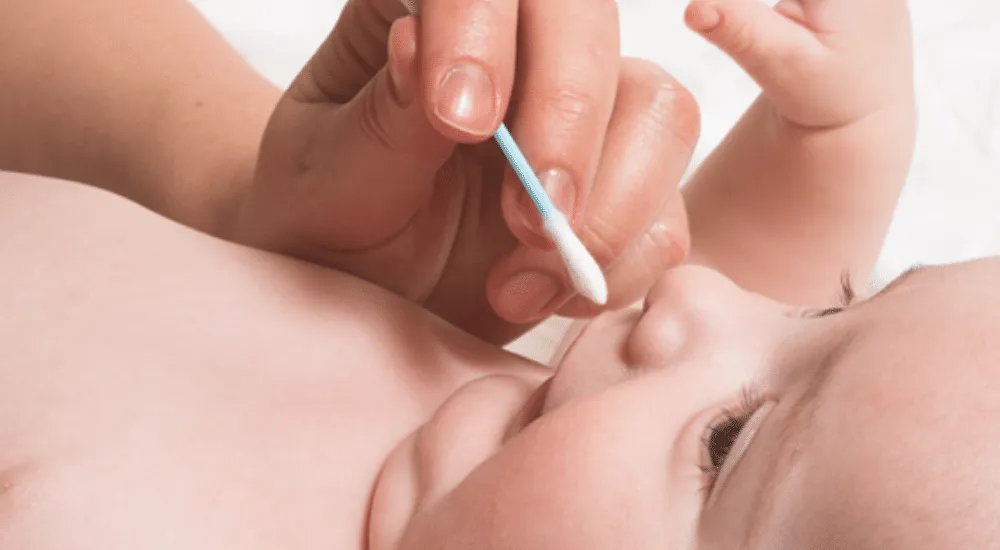OCTOBER 13, 2021
What You Need to Know about a Court-Ordered Paternity Test

Many child-welfare advocates agree: Paternity establishment can provide basic emotional, social and economic ties between a father and his child. Many people get an at-home paternity test simply for peace of mind. They want to put long-held nagging suspicions to rest or confirm a biological relationship for medical or other reasons. But for others, there are legal situations that absolutely require a paternity test. In these cases, doing a court-ordered paternity test or a self-ordered paternity test with court-admissible results becomes necessary. Here’s everything you need to know about a court-ordered paternity test as well as self-ordered legal paternity tests.
CALL FOR A FREE CONSULTATIONCourt-Ordered Paternity Test vs. Self-Ordered Legal Paternity Test
Court-Ordered Paternity Test: A DNA test can be ordered by the court to establish paternity when parents are not married and paternity needs to be established. This is often in response to a petition filed by that state’s Office of the Attorney General asking the court to help determine paternity. Cheek-swab DNA samples for all parties are generally collected either in court, lawyer’s office, or clinic. The court may also ask for birth certificates, proof of marriage, or other court orders, so be prepared. It can take a court 4–6 weeks to notify parties about the results and results are provided solely through the court.
Self-Ordered Legal Paternity Test: A paternity test with court-admissible results doesn’t always need to be ordered by the court. Instead, parents themselves can order a legal paternity test and then have the report on hand as evidence should they ever need to present it in court. In order for the paternity report to be court-admissible, a strict chain-of-custody process must be followed, and DNA collection must be witnessed by an approved third party. If ordered through DDC, the result is ready 1–2 business days after all samples are received at the lab.
Can You Refuse a Court-Ordered Paternity Test?
Can someone refuse a court-ordered paternity test? In most states, an action for determining paternity is considered to be a civil lawsuit, and refusing a paternity test ordered by the court is definitely not a good decision. In some cases, the refuser may face fines or even criminal charges. In other cases, a judge may enter a default (automatic) judgment against the person refusing the test.
Reasons to Get a Court-Ordered Paternity Test / Self-Ordered Legal Test
Child Support and Custody
If a child is conceived and/or born while the couple is married, the man is presumed to be the father. If the couple separate and divorce later, in most cases the man is still considered legally and financially responsible for the child, even if a paternity test determines he is not biologically related.
CALL FOR A FREE CONSULTATION If the couple isn’t married, then a legal relationship must first be established between the child and the father before a child-support order or custody arrangement is approved by the court. If a man has doubts about whether he’s the biological father, it is wise to request a court-ordered paternity test or self-ordered legal test before signing the birth certificate or an acknowledgment of paternity.
Inheritance Rights
Sometimes, as in the case of the late singer Prince, there are situations where inheritance rights are in dispute. The alleged heir may be known or unknown, a minor or an adult, and the rights may or may not be in dispute. Whatever the case, a legal DNA paternity test (or maternity test, if the mother is deceased) can quickly and efficiently put any doubts to rest, ensure that the right people receive what is rightfully theirs, and make certain that everyone involved is treated fairly. And by doing a legal test, the results are court-admissible, should the situation require it.
Parental Benefits
Along with inheritance rights, there are other benefits that heirs may be entitled to upon the decease of a biological parent (mother or father). Social Security and life-insurance benefits often require that a beneficiary provide proof of paternity. A medical examiner is usually court-ordered to collect the DNA sample, which he then submits to an accredited lab, like DDC. Using DNA evidence mitigates the trouble of having to research, locate, and produce other documents as proof of paternity.
Proof of Relationship for Immigration
DNA is the go-to method for all government entities to help prove a close family relationship when birth certificates and other documentation are not available. An immigration paternity test is most often ordered to prove either paternity and maternity, but it can also include sibling tests and grandparent tests. As a highly-accredited lab, DDC works closely with U.S Citizenship and Immigration Services (USCIS) as well as nearly 200 embassies all around the world. We make all the arrangements and guide you every step of the way. Keep in mind that, like other DNA tests that are used for legal reasons, an immigration test requires that DNA collection and submission to the lab be witnessed.
CALL FOR A FREE CONSULTATIONAdoption
The desire to know our biological roots is extremely strong, and so adults who are raised by adoptive parents or who have been conceived through donors often go searching for their birth-mother or birth-father. Many adoptees are finding possible birth parents through ancestry testing. In many of these cases, a home paternity test or maternity test strictly for peace of mind is suitable. But if the child needs the relationship information for any of the reasons listed in this article (immigration, social security, inheritance, etc.), then a witnessed legal DNA test is needed, whether it is court ordered or not.
RESIDENTS OF NEW YORK STATE
Did you know that all residents of New York State must get a legal paternity test even if they don’t plan on using results for legal purposes? This is the current requirement from the New York State Department of Health (NYSDOH). DDC can help New York residents make arrangements for self-ordered legal testing: no court order is necessary.
The Bottom Line
Before taking a paternity test , it’s important to consider how you’re going to use the results. If you want a test simply for your own information and peace of mind, then testing at home is the perfect choice; but it you’re going to use the results for any type of legal reason either now or in the future, you might want to reconsider doing an at-home test. Many customers simply err on the safe side: they go ahead and do legal testing even if they don’t anticipate ever needing to go to court. That way, they only pay for testing one time and their bases are covered. It’s up to you!
About DNA Diagnostics Center (DDC)
DNA Diagnostic Center is the world leader in paternity and relationship testing. We serve healthcare professionals, government agencies, and individuals around the world to determine family relationships with trusted accuracy.
More Questions? Don’t hesitate to call us: we’re here to help!
CALL NOW




